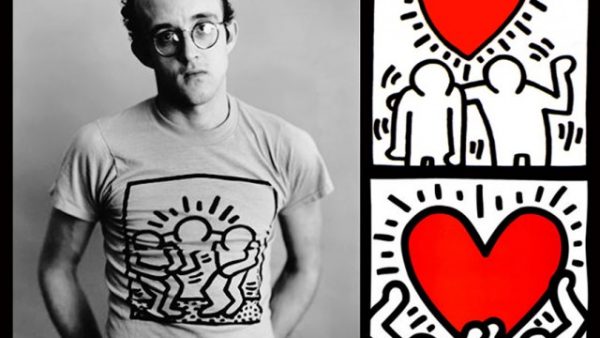Happy 62nd Birthday to Modern Art Icon Keith Haring! (RIP)
Born on this date in 1958, Keith Haring was an artist, an activist, and a reformer who influenced the street art scene in NYC and around the world. The Pennsylvanian who moved to NYC would eventually go on to take an ancient form of art and reintroduce it with new context, spreading the symbols of that language across the world.
Haring was a predecessor of the same networks that produced Jean Michele Basquiat and Madonna. He, like Basquiat, was a hand-chosen successor of Andy Warhol himself and he too, like Warhol, would eventually go on to change what art would be.

In the late 80s he was diagnosed with AIDS and until his death in 1990 advocated its awareness. Organizing large murals over abandoned buildings, working with schools, and donating sculptures – Haring spoke positive messages into communities through characters that were undeniable. Like Warhol, Haring found innovative ways of communicating his art by not only tagging on walls but mass-producing his characters onto merchandise. He was the one to innovate this way of communicating art and lifestyle to the people. By commercializing his work, and having it seen throughout the world, he was able to gain national appeal.
A pioneer, Haring transcended graffiti to the art world, and from the art world to the world. His modern-day hieroglyphics saw their way onto display themselves on major company advertisements, and then became ubiquitous within our history as it made its way into merchandise. It was bigger than art. it could not be contained in a frame. It was a language; a form of communication.
Haring’s work was simple and bold; communicating complex concerns of society and our relation to its subjects. A master at connecting with the audience, Haring communicated his fears, ideologies, and history by using these simple, few, and yet affective characters. He’d created a new language.
Like the characters on a keyboard, Haring’s symbols were associations for communication. It was a way of understanding, a dialogue. Crossing national and social boundaries. Haring shows the power of art.
